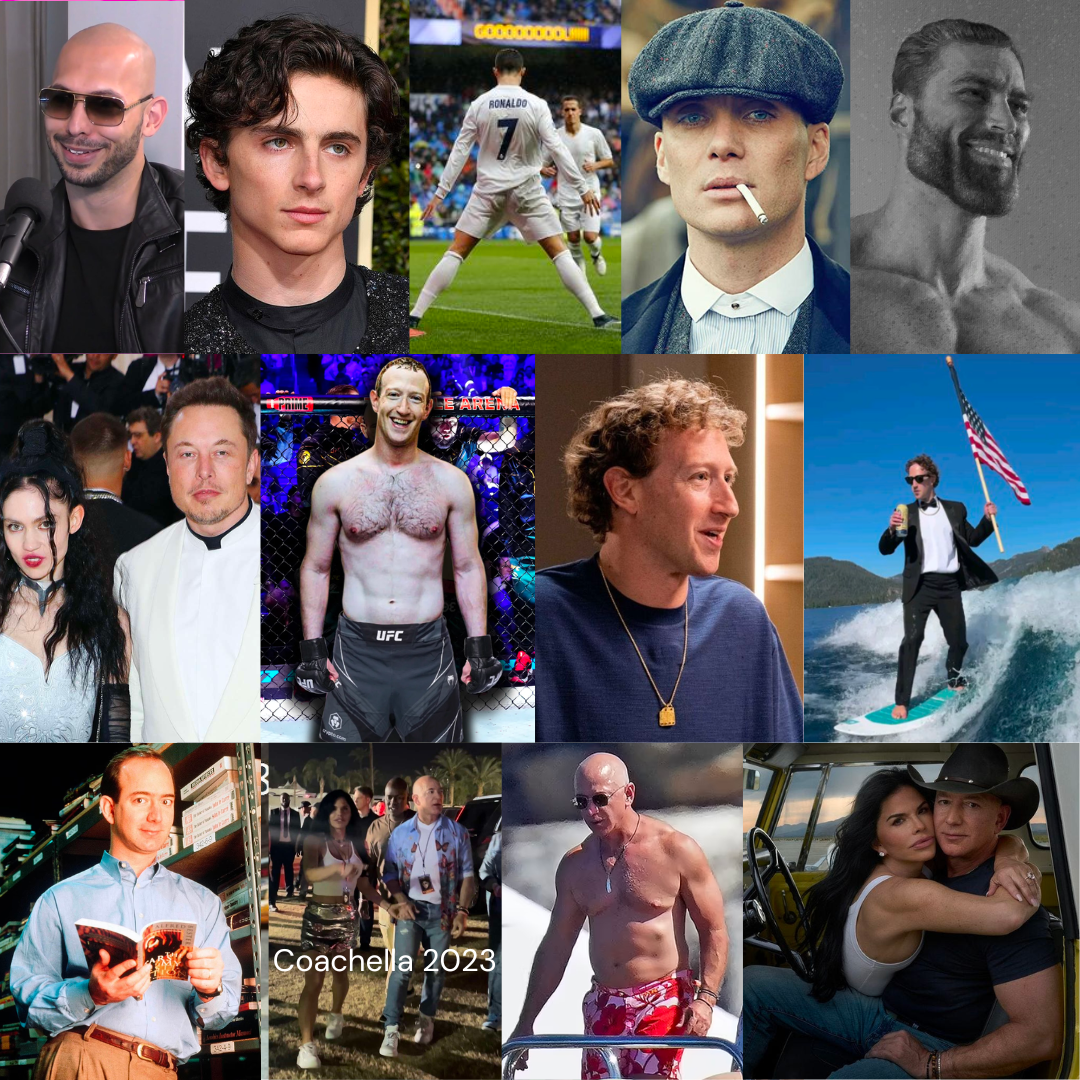The Constant Adoption of New Identities in the Digital Age
 Imran
Imran
Remember when finding your identity was a lifelong journey? Well, buckle up, because in the digital age, that journey has turned into a high-speed roller coaster. All you need to do is take a personality quiz like "Are You A Werewolf Or A Vampire?" We're constantly adopting new identities and discarding them after six months.
From "Sneakerhead" to "Audiophile," "Gamer Girl" to "Trad Wife," "Cat Parents" to "Furries," "Cinephiles" to "Otaku," and "Old Money Style" to "Goth/Emo" aesthetic, the options seem endless. And let's not forget the allure of having a partner who is a "Bad Boy," or the TikTok trend of "Golden Retriever Boyfriend." There are even teenage boys who aspire to be a "Chad" or a "Sigma Male." In this cocktail of identities, we find ourselves constantly reinventing who we are. But why?
The answer lies in the acceleration of capitalism itself. Continuous consumption is needed to fuel economic growth. New identities help justify discarding old possessions and replacing them with new ones.
E-commerce + Online Communities + #Influencer
E-commerce has significantly streamlined the process of acquiring niche items. Instead of spending hours driving to find a small, hidden shop that specializes in such products, people can now make purchases with just a few clicks.
Additionally, online communities (Reddit, Facebook Groups or Discord Servers) enhance this convenience by offering instant access to a sense of belonging, knowledge, and advice. This eliminates the need to wait for in-person meetups to connect with like-minded individuals.
Meanwhile, social media platforms like Instagram, TikTok, and X (formerly Twitter) have given birth to a new breed of identity architects: influencers. These Key Opinion Leaders embody aspirational lifestyles, prompting millions of followers to emulate their identities through consumption.
But here's the kicker: influencers aren't just influencing for influencing sake; they have rent and bills to pay too. With affiliate marketing, they earn commissions from the products they recommend. It's a win-win-win situation: followers get to "try on" new identities, influencers make money, and brands boost their sales.
From Tech Bro to Biohacker in 60 Seconds
The constant exposure to media content (where some are advertisements disguised as content) presents a myriad of lifestyle options and identity expressions, potentially influencing how we perceive and define ourselves. One minute, you're a "tech enthusiast" obsessing over the latest gadgets, AI models or crypto trends. The next, you're a "fitness biohacker" chugging nutrition drinks and tracking your sleep.
Before you know it, you're donning the "startup founder" hat, binging on business podcasts and dreaming of your Shark Tank pitch. Each identity comes with its own set of products to buy, courses to take, and lifestyles to emulate. It's exhausting and suffocating.
Identity Completeness
As we adopt a new identity, there's a compelling urge to achieve a sense of "completeness". We want to create a cohesive narrative for our chosen identity.
We upgrade one aspect of our living room, then feel compelled to buy more furniture to keep the decor "balanced". It's not just about having a new couch; it's about creating a harmonious environment that reflects our taste and style.
After we purchase a new running shoes, we're drawn to acquire the complete set of optimized athletic wear, from moisture-wicking shirts to compression socks.
Some people use months of their salary to buy an iPhone, then AirPods, iPad, MacBook, and Apple Watch, seeking the seamless integration and status that comes by having a perfect Apple ecosystem.
We compete for status as "true fans" by collecting all the merchandise, attending every event, and immersing ourselves completely in the culture surrounding our chosen interests.
This drive for identity completeness can lead to excessive consumption. The challenge lies in recognizing when our pursuit of identity completeness crosses the line from self-expression to compulsive consumption.
But is it a new identity or just a new hobby?
Drawing the line between what constitutes a new identity versus just a new hobby often depends on the depth and impact of the change. One might argue that these rapid shifts in identity are actually just diverse interests. People can maintain multiple interests at the same time. For example, someone can be passionate about coding, starting a new startup, and following health tips from fitness influencers.
We can also say that the fluidity of these "identities" reflects the adaptability required in our rapidly changing world. When people are investing in crypto, it is far-sighted to include bitcoin in their portfolio as a risk management strategy, in case the traditional financial system collapse. Similarly, as AI advancements accelerate, buying AI courses and tools is becoming essential to stay competitive in the market and safeguard against job loss.
The Plot Twist
The same mechanisms driving this consumerist identity carousel are being used to challenge the very system that created them. Movements like "minimalism," "zero waste," and "digital detox" are carving out their own identity niches in social media. Ironically, it's using the tools of consumerism to create identities centered on reducing consumption.
What can we do?
This constant rebirth can be either liberating or overwhelming. The digital age has democratized self-expression, allowing us to explore diverse personas with unprecedented ease. Yet, this freedom comes at a cost – the exhaustion of endless consumption.
Be open to new experiences, but pause and reflect on these crucial questions before adopting a new identity:
Who truly benefits from this shift - is it you, or are there hidden stakeholders?
Is it a new approach to a more fulfilled life, or just another form of consumption in disguise?
Can this new identity be sustained in the long run, such as while having kids or focusing on your career?
Most importantly, does this change come from a place of authentic curiosity and growth, or is it driven by insecurity, fear of missing out, or the need to fit in? Contrarily, are you motivated by a contrarian desire to oppose whatever is mainstream (validating a belief that you're unique and not a "sheeple" or "NPC")?
As you ponder these questions, remember to seek diverse perspectives rather than relying solely on influencers or echo chambers. Engage with critics and skeptics to gain a balanced view. Never ask a barber whether you need a haircut. And avoid blind trust, even in those doctors, billionaires and experts with credentials.
Now the most important question is, who will you be tomorrow?
This blog post is inspired by reflections on Jonah Peretti's "Capitalism and Schizophrenia: Contemporary Visual Culture and the Acceleration of Identity Formation/Dissolution."
Subscribe to my newsletter
Read articles from Imran directly inside your inbox. Subscribe to the newsletter, and don't miss out.
Written by

Imran
Imran
Creating content related to startups, AI, web development, and unconventional, yet innovative ideas.